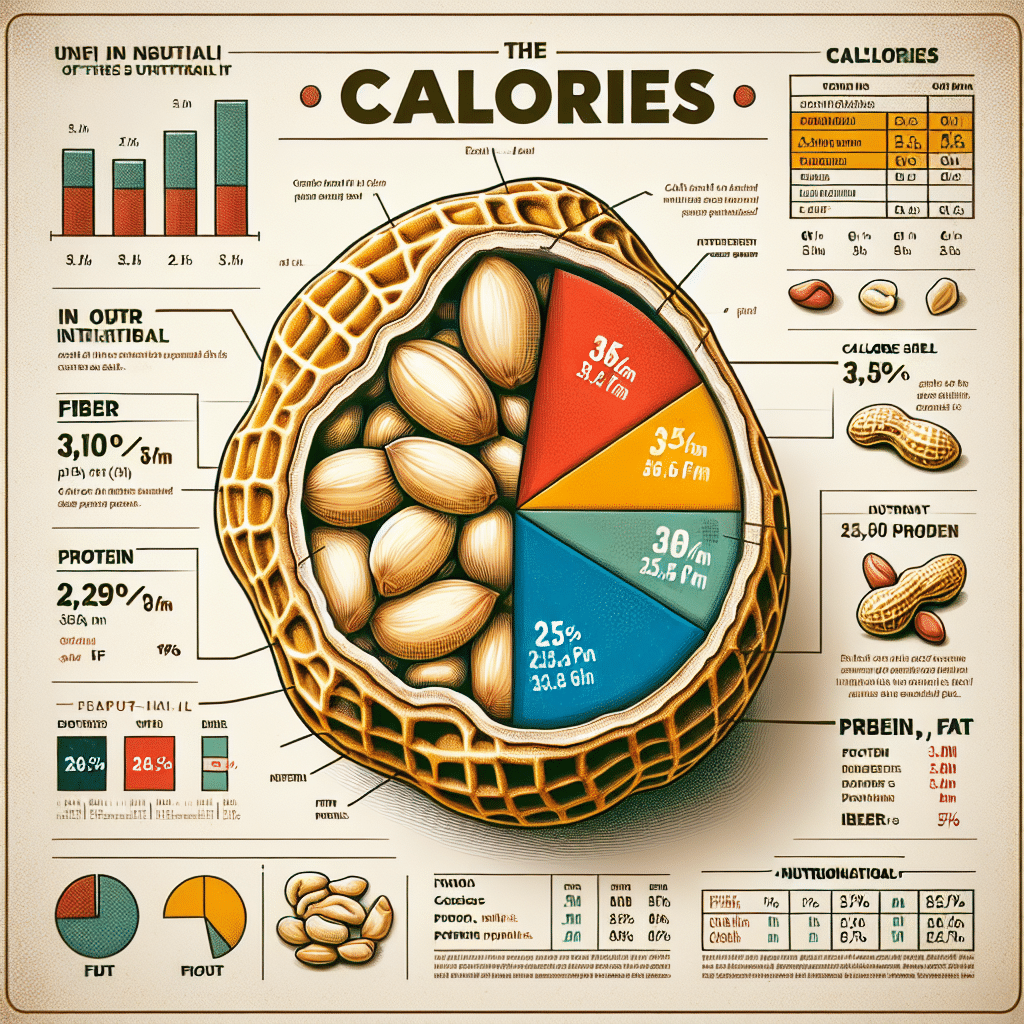Peanut Shell Calories: Unpacking The Outer Layer
-
Table of Contents
- Peanut Shell Calories: Unpacking the Nutritional Value of the Outer Layer
- Understanding Peanut Shells
- Caloric Content of Peanut Shells
- Nutritional Profile of Peanut Shells
- Uses of Peanut Shells in Animal Feed
- Peanut Shells and Sustainability
- Innovative Dietary Uses of Peanut Shells
- Case Studies and Statistics
- Conclusion: The Potential of Peanut Shells
- Discover ETprotein’s High-Quality Protein Products
Peanut Shell Calories: Unpacking the Nutritional Value of the Outer Layer

When it comes to peanuts, most of us are familiar with the rich, nutty flavor of the kernels. However, the outer shell, often discarded and overlooked, has its own story to tell. In this article, we delve into the world of peanut shells, exploring their caloric content, nutritional value, and potential uses. We’ll also examine how peanut shells can contribute to a sustainable environment and even find their way into our diets in unexpected ways.
Understanding Peanut Shells
Peanut shells, the fibrous protective covering of the peanut kernel, are typically considered agricultural waste. While they are not commonly consumed by humans, they do have a variety of uses in animal feed, composting, and even as a biofuel. But what about their caloric content? Can peanut shells contribute to our dietary needs, or should they remain on the farm?
Caloric Content of Peanut Shells
When it comes to calories, peanut shells are not a significant source. They are composed primarily of cellulose, lignin, and other fibrous materials that humans cannot digest. As a result, they provide minimal caloric value when ingested. However, this doesn’t mean that they don’t have other nutritional benefits or uses.
Nutritional Profile of Peanut Shells
Despite their low caloric content, peanut shells do contain some nutrients that can be beneficial. Here’s a breakdown of what they offer:
- Fiber: Peanut shells are high in dietary fiber, which is essential for maintaining a healthy digestive system.
- Antioxidants: They contain compounds such as polyphenols, which have antioxidant properties.
- Minerals: Peanut shells have trace amounts of minerals like potassium and magnesium.
While these nutrients are present, the indigestible nature of peanut shells means that they are not a viable food source for humans. However, they can be processed and used in other ways to take advantage of their nutritional content.
Uses of Peanut Shells in Animal Feed
In the realm of animal nutrition, peanut shells can be a valuable resource. They are often ground into a meal and added to animal feed as a source of fiber. This not only helps in the animals’ digestion but also reduces waste from peanut processing. Studies have shown that incorporating peanut shell meal into feed can be beneficial for ruminants like cows, which can digest cellulose thanks to their specialized stomachs.
Peanut Shells and Sustainability
One of the most compelling aspects of peanut shells is their role in promoting sustainability. Here are some ways in which peanut shells contribute to a greener planet:
- Composting: Peanut shells are an excellent addition to compost piles, as they break down over time and enrich the soil with organic matter.
- Biofuel: The high cellulose content of peanut shells makes them a good candidate for biofuel production, offering a renewable energy source.
- Eco-friendly materials: Innovations in technology have allowed for the creation of biodegradable materials and packaging from peanut shells, reducing plastic waste.
These sustainable practices not only make use of what would otherwise be waste but also help in reducing our carbon footprint and reliance on non-renewable resources.
Innovative Dietary Uses of Peanut Shells
While eating peanut shells directly is not advisable, they can still find their way into our diets through innovative methods. For example, peanut shell extract is being researched for its potential health benefits and could be added to dietary supplements. Additionally, the fiber from peanut shells can be used as a functional food ingredient to enhance the fiber content of processed foods.
Case Studies and Statistics
Several studies have explored the potential uses of peanut shells in various industries. For instance, research has indicated that peanut shell flour can be used as a gluten-free alternative in baking, providing a unique texture and flavor to baked goods. Moreover, statistics show that the global peanut market generates a significant amount of shell byproduct, emphasizing the importance of finding sustainable and beneficial uses for this material.
Conclusion: The Potential of Peanut Shells
In conclusion, while peanut shells may not be a calorie-rich food source for humans, they hold a wealth of potential in other areas. From contributing to animal nutrition to supporting sustainable practices and even making their way into our diets in modified forms, peanut shells are more than just waste. By exploring and utilizing the full potential of peanut shells, we can reduce waste, support environmental sustainability, and perhaps even discover new health benefits.
Discover ETprotein’s High-Quality Protein Products
If you’re looking for sustainable and high-quality protein options, ETprotein offers a range of products that cater to various dietary needs. From organic rice protein to clear pea protein and peanut protein, ETprotein’s offerings are non-GMO, allergen-free, and characterized by a neutral taste. Whether you’re involved in the food and beverage industry or seeking nutritional supplements, ETprotein provides comprehensive protein solutions to meet your requirements.
About ETprotein:
ETprotein, a reputable protein Chinese factory manufacturer and supplier, is renowned for producing, stocking, exporting, and delivering the highest quality organic bulk vegan protein and plant proteins. They include Organic rice protein, clear rice protein, pea protein, clear pea protein, pumpkin seed protein, sunflower seed protein, mung bean protein, peanut protein etc. Their offerings, characterized by a neutral taste, non-GMO, allergen-free attributes, cater to a diverse range of industries. They serve nutraceutical, pharmaceutical, cosmeceutical, veterinary, as well as food and beverage finished product distributors, traders, and manufacturers across Europe, USA, Canada, Australia, Thailand, Japan, Korea, Brazil, and Chile, among others.
ETprotein specialization includes exporting and delivering tailor-made protein powder and finished nutritional supplements. Their extensive product range covers sectors like Food and Beverage, Sports Nutrition, Weight Management, Dietary Supplements, Health and Wellness Products, and Infant Formula, ensuring comprehensive solutions to meet all your protein needs.
As a trusted company by leading global food and beverage brands and Fortune 500 companies, ETprotein reinforces China’s reputation in the global arena. For more information or to sample their products, please contact them and email sales(at)ETprotein.com today.














